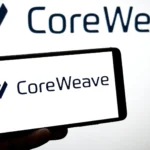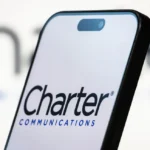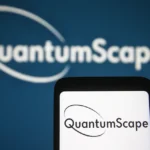The contemporary workplace is a dynamic environment, constantly evolving with new technologies, shifting work models, and, crucially, the integration of new generations.
As return-to-office policies gain traction, bringing young workers into physical office spaces for the first time, a notable culture clash is emerging, particularly in bustling metropolitan areas like San Francisco. Employers in the Bay Area are facing a unique set of challenges with their Gen Z employees, many of whom have spent significant portions of their formative educational and early career years operating entirely remotely. This unprecedented shift has led to a noticeable gap in fundamental workplace skills and social norms.
The core of the issue, as articulated by many frustrated employers, revolves around what they perceive as a lack of basic professional etiquette. Complaints range from seemingly minor infractions like questionable hygiene and inappropriate office attire (such as showing up in sweats or overly “skimpy office-siren fits”) to more significant behavioral concerns like FaceTime calls from desks, leaving food wrappers scattered on communal tables, and even “ghosting” managers without explanation.
There’s a pervasive sense that young workers are treating the professional office environment “like their bedroom” or an extension of their homes. This perceived lack of professionalism, combined with an eagerness for rapid promotion after only a few months, has led to a surge in a novel solution: Bay Area employers are increasingly hiring etiquette experts to train their young employees in basic workplace manners. This strategic investment highlights the growing need to equip Gen Z with the essential soft skills required to thrive in a collaborative, in-person professional setting.
The Employer Perspective: Unpacking the Complaints
Employers across various industries are vocalizing similar frustrations regarding the workplace behavior and expectations of their Gen Z hires.
Navigating Unfamiliar Office Norms
The complaints from employers about their Gen Z workers are becoming increasingly consistent and widespread. Many managers express that young workers, particularly those in their first professional roles, appear to be having a uniquely hard time getting along in the office. This challenge, they report, is perceived as being much worse than with previous generations, such as Millennials or Gen Xers, at similar stages in their careers. The issues span a spectrum from basic personal conduct to professional communication.
Specific grievances frequently cited include a perceived lack of personal hygiene, with supervisors noting instances where new hires did not shower or change shirts for extended periods. This fundamental aspect of workplace readiness has become a surprising point of contention.
Beyond hygiene, the casual attitude towards professional environments is evident in their attire choices, ranging from overly relaxed “sweats” to “skimpy office-siren fits” that are deemed inappropriate for a professional setting. The blurring of personal and professional boundaries is also highlighted by behaviors like FaceTiming friends from their desks during work hours, oblivious to the distractions caused to colleagues. Furthermore, a disturbing trend of “ghosting their managers” has emerged, where young employees simply stop responding or showing up without formal notice.
A striking illustration of this perceived over-reliance on parental support comes from a December 2024 survey of 1,000 employers by Intelligent.com, which revealed that an astonishing 12.5% said a Gen Z candidate had brought a parent (Mom or Dad) to a job interview. These collective observations paint a picture of bosses who are increasingly “fed up” and seeking external solutions to address these foundational workplace challenges.
The Challenge of Managing Expectations
Beyond basic etiquette, employers also report significant challenges related to Gen Z’s professional expectations and their approach to authority. A common grievance is the perceived desire among young workers to be promoted after only a few months on the job, regardless of their demonstrated performance or tenure. This contrasts sharply with traditional career progression models and can create tension when expectations are not met.
Managers also note what they describe as an extreme level of hand-holding that young workers seem to expect, suggesting a need for constant guidance and reassurance rather than independent problem-solving. This perceived need for special accommodations often forces managers into a “parenting mode,” which they find both time-consuming and frustrating, distracting them from their primary responsibilities.
Another frequent complaint centers on new hires questioning instructions or pushing back against established procedures. Employers interpret this as being “challenged by their young colleagues,” leading to friction and a sense of insubordination. While this can sometimes be a sign of youthful curiosity or a desire for context, as some experts suggest, it often manifests as a lack of deference to established authority and experience. This dynamic can be particularly challenging for managers from older generations who are accustomed to a more hierarchical and directive approach to workplace interactions.
The overall impression is that these young workers, many experiencing their first sustained in-person work environment, are struggling to adapt to unspoken rules and traditional professional norms, necessitating a more hands-on and structured approach from their employers.
The Gen Z Perspective: A Different View of Work-Life Balance
While employers voice their frustrations, Gen Z offers a counter-narrative, often highlighting a desire for better work-life balance and a questioning of traditional corporate structures.
@daniellexxvv2 Part 2 – a full week of #officesiren outfits #corporatebaddie #officeoutfit #corporatelife
Questioning Traditional Work Norms
From the perspective of Gen Z, the perceived issues with workplace conduct often stem from a fundamental difference in values and expectations regarding work. Many young workers see things differently than their older managers, particularly concerning the concept of work-life balance. This generation, having grown up in an era of constant digital connectivity and often witnessing the burnout of previous generations, prioritizes personal well-being and boundaries. For them, the relentless pursuit of career advancement at the expense of personal life is not an ideal.
Kevin, a 23-year-old engineer living in SoMa, encapsulates this viewpoint: “No cap. My manager Slacks me at 10 p.m.,” he stated, emphasizing a casual yet firm rejection of after-hours work communication. “That’s not OK.” This sentiment appears to be a common theme among his peers, suggesting a widespread expectation for clear boundaries between work and personal time. Social media platforms amplify these discussions, with one young person’s tweet reflecting the collective sentiment: “Still waiting for that work-life balance they promised us,” in response to complaints about Gen Z employees.
This highlights a perceived disparity between the promises of a flexible, balanced work environment and the reality of their managers’ demanding work habits. The generational divide has become starker in the past few months, largely because return-to-office policies have brought in Gen Zers for the first time—often after years of working and attending school remotely. This lack of prior in-person professional experience means that the traditional unspoken rules of office life are genuinely new territory for many, leading to misunderstandings when their digital-native habits clash with established corporate norms.
The Solution: Etiquette Coaches to the Rescue
In response to these burgeoning workplace challenges, San Francisco employers are turning to a specialized solution: professional etiquette coaches.
@eatbyamy #millenialsoftiktok #genzhumor #genzvsmillenial send help need a translator
The Rise of Workplace Etiquette Training
The growing friction between Gen Z employees and their managers has prompted a novel solution in the Bay Area: the hiring of specialized etiquette experts to train young employees in basic workplace manners. This trend signifies a shift from internal disciplinary measures to proactive, external education. Rosalinda Randall, a Marin-based etiquette coach, has observed a significant surge in demand for her services. She reported that inquiries have risen 50% over the last two months, indicating a rapid escalation of the issue for many businesses.
These requests for etiquette training are not limited to one specific industry; they are coming from a diverse range of organizations. Randall noted receiving calls from tech campus managers, who are at the forefront of employing a large number of young workers, as well as winery executives and even prestigious country clubs. Despite the varied settings, the underlying complaint remains remarkably consistent: all are variations on the same theme, lamenting that Gen Z employees are treating the office like an extension of their homes.
This widespread concern points to a systemic issue where the informalities of remote learning and personal digital communication have blurred the lines of professional conduct in the physical workplace. Employers are seeking external expertise to formally impart the unspoken rules and expectations of a traditional office environment to a generation that has not had the same exposure to them.
Addressing Core Behavioral Gaps
Etiquette coaches like Rosalinda Randall are tailoring their workshops to directly address the most pressing concerns voiced by employers. Randall detailed a specific instance where a supervisor reported a new hire who repeatedly left food wrappers scattered on the communal lunch table, assuming janitors would clean it up. This seemingly minor act reveals a fundamental misunderstanding of shared responsibility and respect for common spaces. The manager, in this situation, felt ill-equipped to address the issue directly, stating they “didn’t know how to handle it, as they didn’t want to sound like a parent.” This highlights the delicate balance managers face in correcting behavior without alienating or infantilizing young employees.
Randall’s workshops are designed to cover a broad spectrum of “basic skills,” from foundational elements like personal hygiene—a critical issue for one Bay Area tech firm that hired her specifically because two new hires reportedly did not shower or change their shirts for weeks—to more nuanced professional interactions. She explicitly “made her presentation to all new hires and added slides to hammer home the hygiene point,” illustrating the directness sometimes required.
Her sessions, which she charges clients like Stanford Research Park and major Big Tech firms up to $2,500 for 90-minute workshops, delve into essential etiquette points. These include crucial non-verbal cues like how to make eye contact, precise details such as where to stick your name tag (always on the right), and vital communication skills like how to ask for—not demand—things from your boss. This comprehensive approach aims to equip Gen Z employees with the full toolkit of professional conduct, bridging the gap between their digital-native upbringing and the expectations of a corporate environment.
Beyond Basic Manners: Communication and Expectations
The challenges with Gen Z extend beyond simple etiquette, touching upon communication styles, expectations for support, and the very concept of work-life balance.
Navigating Communication Styles
The emergence of etiquette coaches also signals a deeper dive into communication styles and workplace expectations. Melissa Franks, founder of On Call COO in Petaluma, experienced a surge in inquiries this spring, with many calls centered on the question: “How do I manage Gen Z?” A recurring theme in these discussions was the tension arising from new hires questioning instructions. Employers often interpret this as being “challenged by their young colleagues,” perceiving it as insubordination.
However, Franks offers a different perspective, urging bosses to reframe this pushback. She suggests viewing it as youthful curiosity rather than outright insubordination. Her advice is pragmatic: “Give them more context about why things are done a certain way, and you’ll get more respect.” This approach acknowledges Gen Z’s desire for understanding and purpose, suggesting that clear explanations can foster trust and compliance more effectively than strict directives.
This highlights a crucial communication gap: while older generations might expect immediate adherence, Gen Z often seeks the ‘why’ behind tasks and processes, reflecting a more collaborative and transparent approach to work.
The Need for “Cultural Blueprints”
Another frequent complaint from staff members who feel they are forced into “parenting mode” with Gen Zers involves the special accommodations and extreme levels of hand-holding that young workers expect. This extends beyond basic task instructions to a perceived need for constant reassurance and detailed guidance on even minor aspects of office life. In response, Melissa Franks advocates for a proactive solution: encouraging companies to develop “cultural blueprints” for young workers.
Essentially, these blueprints are playbooks that detail everything from appropriate office attire to email signoffs, leaving little to ambiguity. They are designed to get as granular as outlining ideal “meeting behavior,” specifying proportions like “70% observing, 25% asking clarifying questions, and 5% contributing ideas.” This structured approach aims to formalize unspoken norms, providing clear expectations for a generation that may not have absorbed these through traditional osmosis. The goal is to reduce friction by making implicit workplace rules explicit, thereby empowering young workers with the knowledge they need to navigate the professional environment successfully and reduce the burden on managers.
Broadening the Impact: Beyond Corporate Offices
The friction described by employers is not confined solely to corporate office environments or the tech industry. It extends into other professional fields, indicating a broader societal shift in workplace readiness. Hospital managers, for instance, have informed Rosalinda Randall that newly hired nurses are exhibiting signs of apathy and entitlement. This is particularly concerning in a profession that demands high levels of empathy, diligence, and resilience.
These young nurses, managers report, bristle at overly chatty patients and even try to shirk “dirty” tasks. Randall shared a specific anecdote: “They demand to be released from bedpan duty,” she stated, adding, “They don’t like it, so they think they shouldn’t have to do it.” This sentiment reflects a perceived aversion to less glamorous or more physically demanding aspects of the job, coupled with an expectation that if a task is unpleasant, it should simply be delegated or avoided.
Such attitudes pose significant challenges in fields where all tasks are critical for patient care and team collaboration. This highlights that the generational gap in workplace expectations and professional conduct is a pervasive issue, affecting not just corporate culture but also critical service industries where diligence and a willingness to perform all duties are paramount.
Internal Initiatives and Long-Term Solutions
While external etiquette coaches are in high demand, some large organizations are also implementing their own internal strategies to address the soft skills gap in their Gen Z workforce.
In-House Soft Skills Development
Recognizing the critical importance of soft skills, some major organizations are taking the initiative to develop their etiquette and professional training programs in-house, rather than solely relying on external consultants. Salesforce, a global tech giant, is a prime example of this proactive approach. In 2024, Jenny Simmons, VP and global head of onboarding and employee learning at Salesforce, significantly revamped the company’s processes for new workers. Her objective was to beef up the training of soft skills, acknowledging that these are crucial for workplace success but often lacking in new hires.
Simmons implemented a series of new classes specifically designed to address these gaps. These included modules on presentation skills, crucial for effective communication in meetings and client interactions. Training in emotional intelligence was also added, aimed at helping young employees better understand and manage their own emotions, as well as perceive and influence the emotions of others, leading to more productive team dynamics.
A particularly relevant addition for a tech-heavy company was Slack etiquette, emphasizing proper digital communication norms. For instance, the training specifically addressed “not spamming channels with streams of consciousness but threading like a civilized human,” a humorous yet important lesson on efficient and respectful digital collaboration. These internal initiatives demonstrate a commitment to equipping new employees with the foundational interpersonal skills necessary for thriving within a large corporate environment, acknowledging that these skills are as vital as technical competencies.
Leveraging AI for Onboarding and Connection
Beyond traditional soft skills training, Salesforce is also exploring innovative technological solutions to support its new Gen Z hires. In May [2025], the company rolled out an AI onboarding agent. This intelligent agent is designed to streamline the onboarding process and foster social connections for new employees. Its primary function is to surface FAQs, events, and new-hire skill matches, providing a readily accessible resource for common questions and helping new team members navigate the complexities of a large organization. The AI agent aims to proactively address the information needs of young employees, reducing the feeling of being overwhelmed or lost.
Simmons articulated the rationale behind this initiative, stating of younger employees: “They don’t know what they don’t know.” This insight acknowledges that a lack of experience can manifest as a lack of awareness about what information to seek or what questions to ask. By “wrapping it up in a bow for them,” the AI agent makes essential information easily discoverable and digestible, ensuring that new hires “don’t have to hunt things down.”
Furthermore, by facilitating connections to events and skill matches, the AI aims to build a sense of community and belonging from day one. This blend of structured soft skills training and cutting-edge AI support demonstrates Salesforce’s comprehensive approach to integrating Gen Z into its workforce, addressing both the behavioral and informational gaps they may face.
The Economic Imperative for Training
The investment in soft skills training for Gen Z is not merely about fostering a harmonious workplace; it also has a significant economic imperative. With unemployment for 20- to 24-year-olds currently at 6.6%, which is well above the national average of 4%, and a shortage of entry-level roles, Gen Z workers face a competitive job market. In this environment, they “can’t afford to screw up.” This economic reality underscores the importance of acquiring and demonstrating the professional skills that employers value.
For companies, an investment in training at the beginning of an employee’s tenure can yield substantial returns, making it a clear net gain. This is supported by data from the World Economic Forum’s January Future of Jobs report, which indicates that 77% of companies report that soft skills training increases productivity. This direct correlation between soft skills and productivity provides a strong business case for such training initiatives.
By enhancing communication, collaboration, and professional conduct, employees become more effective, contributing more meaningfully to organizational goals. This mutual benefit incentivizes both employers to provide training and Gen Z employees to actively engage with and internalize these crucial soft skills for their long-term career success.
Alternative Management Philosophies
While many employers are turning to formal etiquette training, some leaders are adopting alternative approaches to managing Gen Z, focusing on transparency and mentorship. Jim Rettew, interim CEO at Yerba Buena Center for the Arts, represents a more stern, yet open, approach. He acknowledges the strengths of Gen Z, noting they are “great at challenging authority and the status quo.” However, he also expresses a common frustration: “sometimes I just want someone to buckle down and follow orders.”
This highlights the tension between Gen Z’s desire for autonomy and the need for directive action in certain operational contexts. Rettew observes that this generation prefers to “be mentored, not managed,” indicating a desire for guidance and development rather than top-down instruction.
Instead of relying on outside training consultants, Rettew leans on a philosophy of radical transparency. He implements AMA (Ask Me Anything) town halls, where employees can openly voice concerns and ask questions. He also maintains open financials, providing employees with a clear understanding of the organization’s economic health, fostering trust and shared responsibility. Regular one-on-ones are another key component, allowing for direct, personalized feedback and guidance.
Rettew recognizes that Gen Z workers “bring moral clarity, which is refreshing,” often pushing for ethical and socially conscious practices. However, he also notes that “nuance is a muscle they’re still building,” suggesting that while they possess strong values, they may lack the experience to navigate complex situations with subtlety and diplomacy. This approach emphasizes internal communication and a direct, honest dialogue to bridge generational gaps.
Academic Responses: Universities Step Up
The challenges faced by Gen Z in the workplace are not going unnoticed in academia, with universities now incorporating etiquette training into their curricula.
Preparing Future Graduates for the Workforce
The feedback from employers about the professional readiness of recent graduates has prompted academic institutions to take action. Universities are increasingly recognizing their role in preparing students for the nuances of the professional world, beyond just technical knowledge. Local universities have heard directly from major employers, including global firms like PriceWaterhouseCoopers and Dell, that new graduates were “flunking basic manners at work.” This feedback, indicating a significant skills gap, has spurred a proactive response from educational institutions.
In response to these concerns, San Jose State University hired Syndi Seid, the Marin-based founder of Advanced Etiquette, to provide specialized training. Seid was brought in to run a comprehensive 3.5-hour “etiquette dinner” for 100 students. These immersive events are designed to teach practical dining etiquette and social graces in a simulated professional setting. Seid has successfully conducted similar events at other reputable institutions, such as the Barowsky School of Business at Dominican University, demonstrating a recognized need for such training in higher education.
The goal is to equip students with the confidence and skills to navigate professional networking events, interviews, and corporate dinners effectively, ensuring they make a positive impression from day one.
Addressing Meeting and Interview Conduct
The issues extend beyond dining etiquette to fundamental professional conduct in crucial business settings. Across the Bay, at Cal State East Bay, hospitality professor Thomas Padron revived his popular pre-pandemic etiquette dinners this spring. He too cited similar complaints from employers, highlighting persistent issues with young workers’ behavior during formal meetings and even job interviews. Specifically, employers reported that Gen Z workers were frequently texting and taking voice calls during meetings, and alarmingly, even during job interviews. This behavior, perceived as highly disrespectful and unprofessional, is a significant red flag for prospective employers.
Professor Padron’s stark warning encapsulates the severity of such conduct: “When you do that, you might as well walk out the door,” he stated, emphasizing the immediate and negative impact these actions have on professional perception. His revived etiquette dinners and related training aim to instill a deep understanding of proper conduct in professional settings, stressing the importance of active listening, respectful engagement, and focused attention during critical discussions and evaluations.
This proactive approach by universities aims to bridge the gap between academic preparation and real-world professional expectations, ensuring that graduates are not only technically competent but also socially and professionally adept.
Trainable and Eager Generation
Despite the current friction and the need for targeted training, workplace etiquette experts offer an optimistic outlook on Gen Z. The good news, they collectively agree, is that young people are trainable and eager to learn. This inherent willingness to adapt and grow suggests that the current challenges are not insurmountable, but rather a transitional phase requiring clear guidance and structured support.
As Professor Thomas Padron succinctly puts it, “Presence and presentation is everything.” This encapsulates the critical importance of non-verbal cues, confidence, and overall professional demeanor. He adds a crucial insight into Gen Z’s motivation: “Once they realize that their bosses aren’t mind readers, they put in the time.” This implies that once young workers understand the expectations, the ‘unwritten rules,’ and the direct impact of their behavior on their career progression, they are fully capable and motivated to adjust.
The ongoing efforts by San Francisco employers, etiquette coaches, and universities to invest in comprehensive soft skills training for Gen Z are not just about correcting perceived deficiencies but about nurturing a highly capable, value-driven generation into becoming effective and impactful professionals. By providing the explicit guidance that may have been missing in a remote-first world, these initiatives are setting the stage for a more harmonious and productive future workforce.








